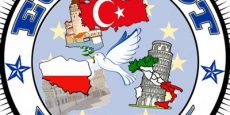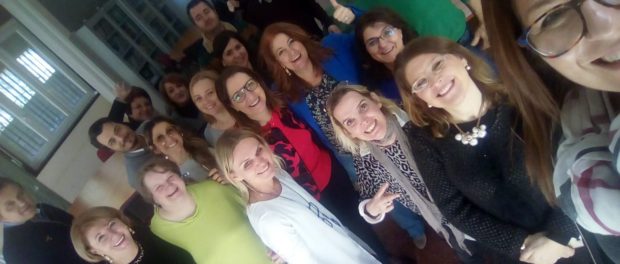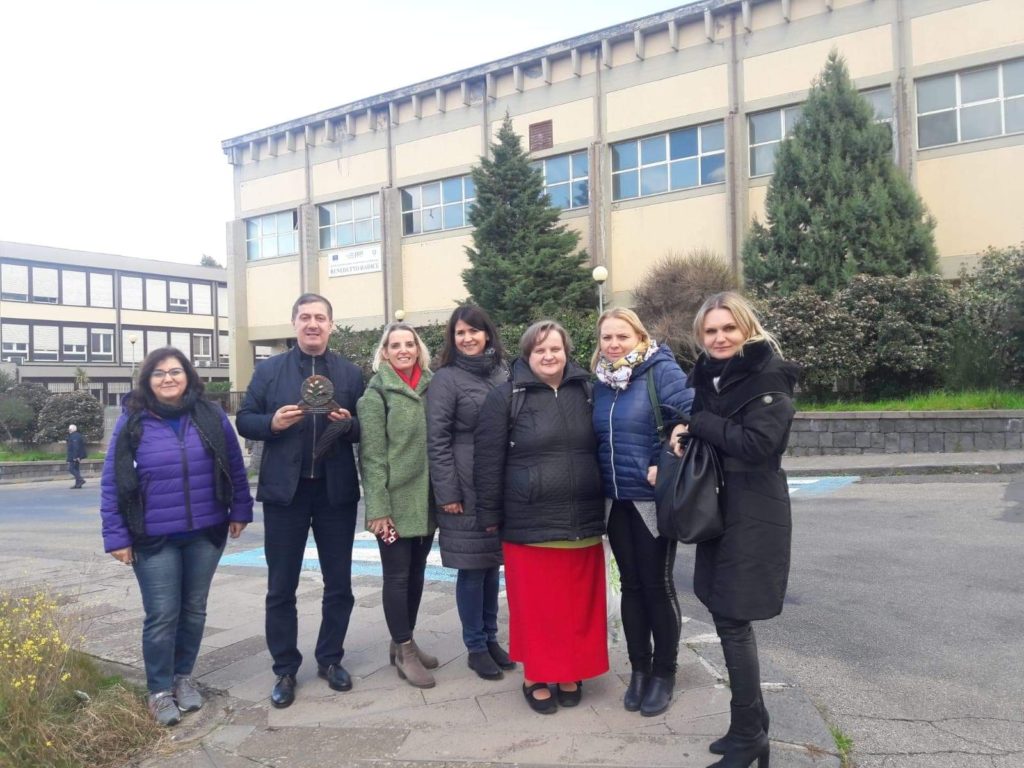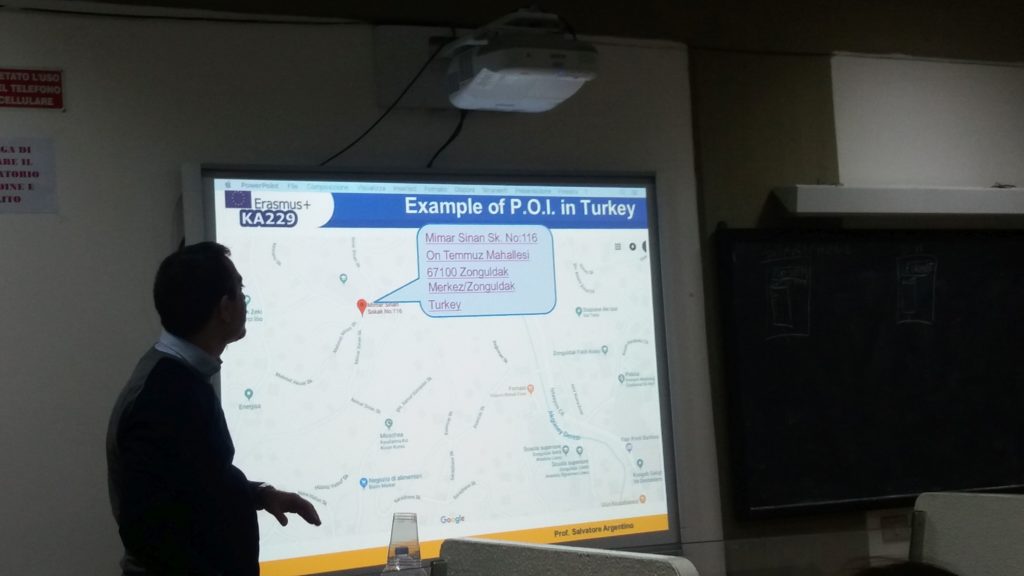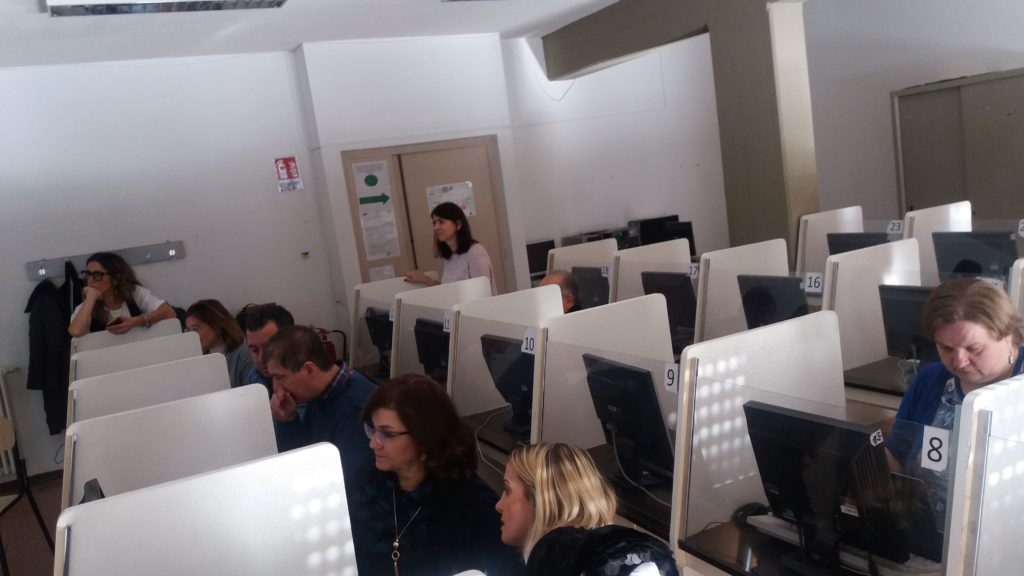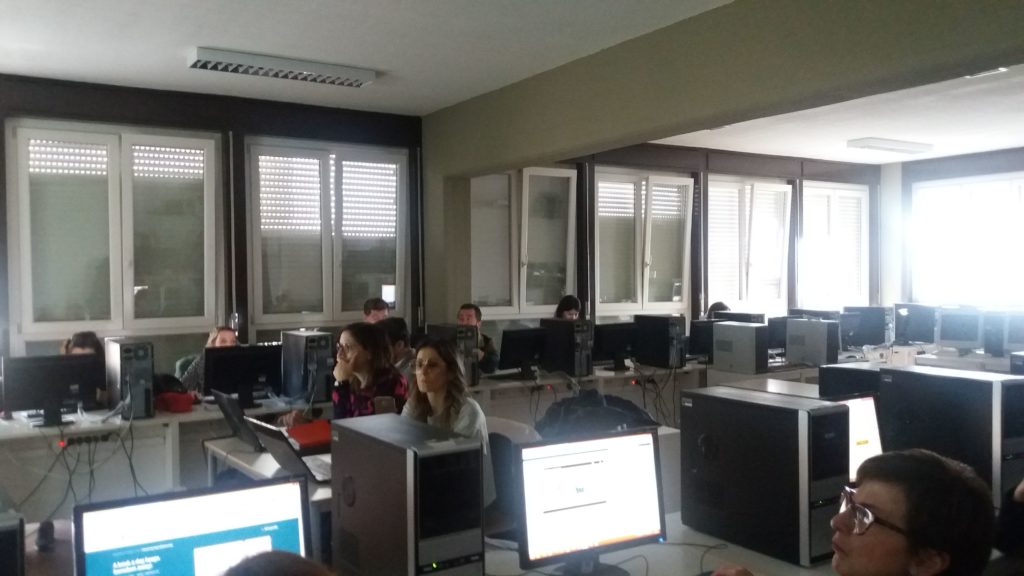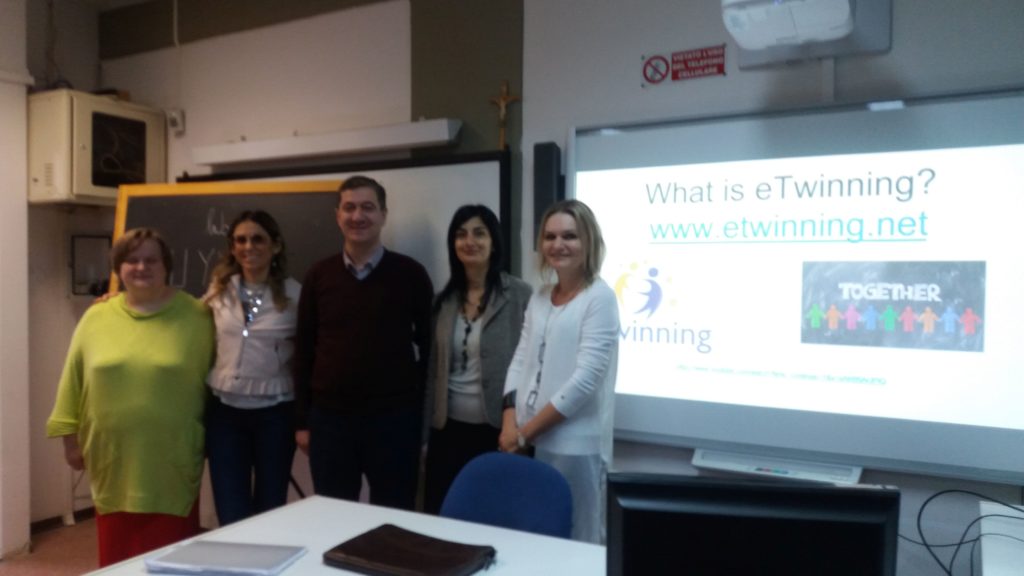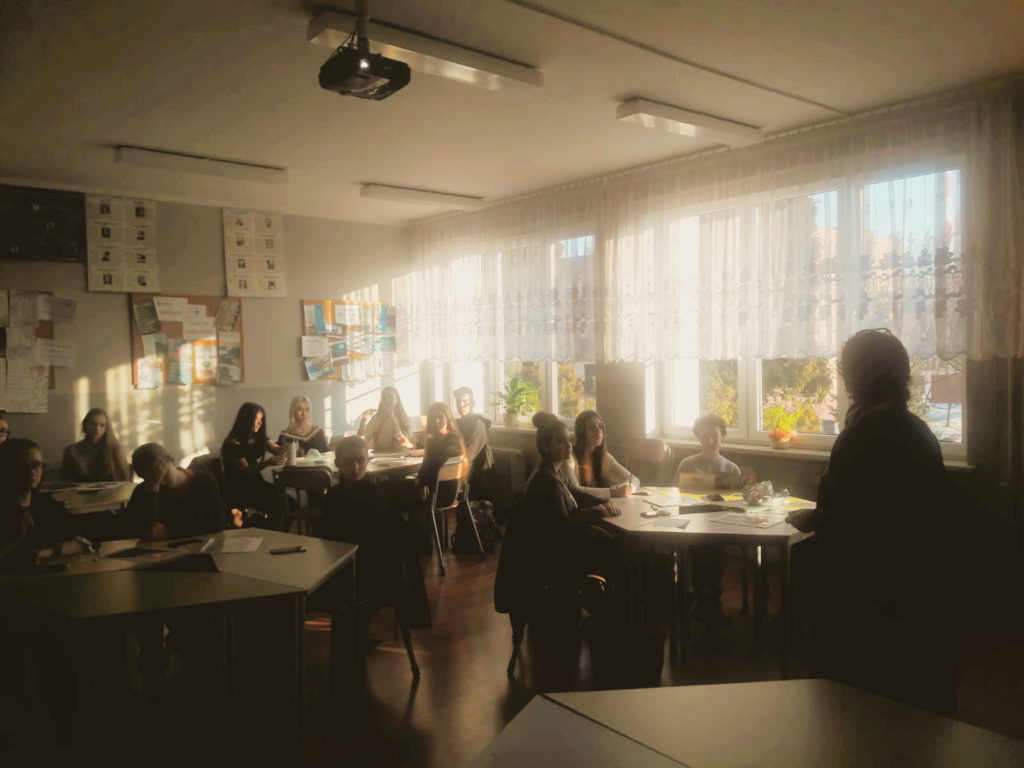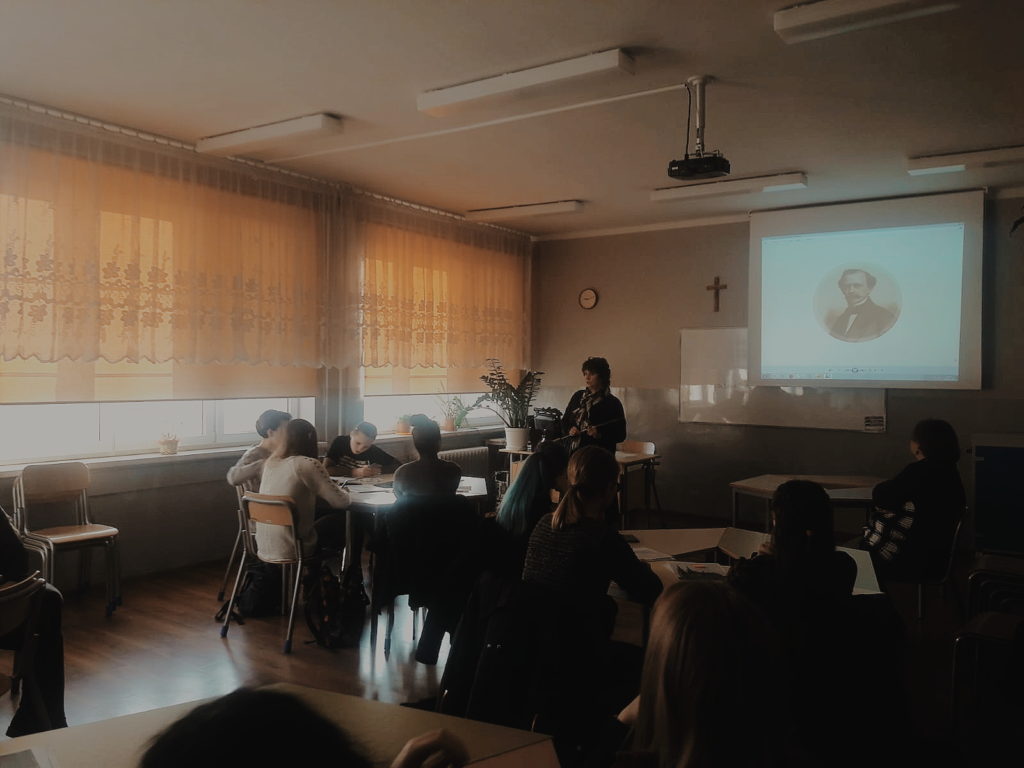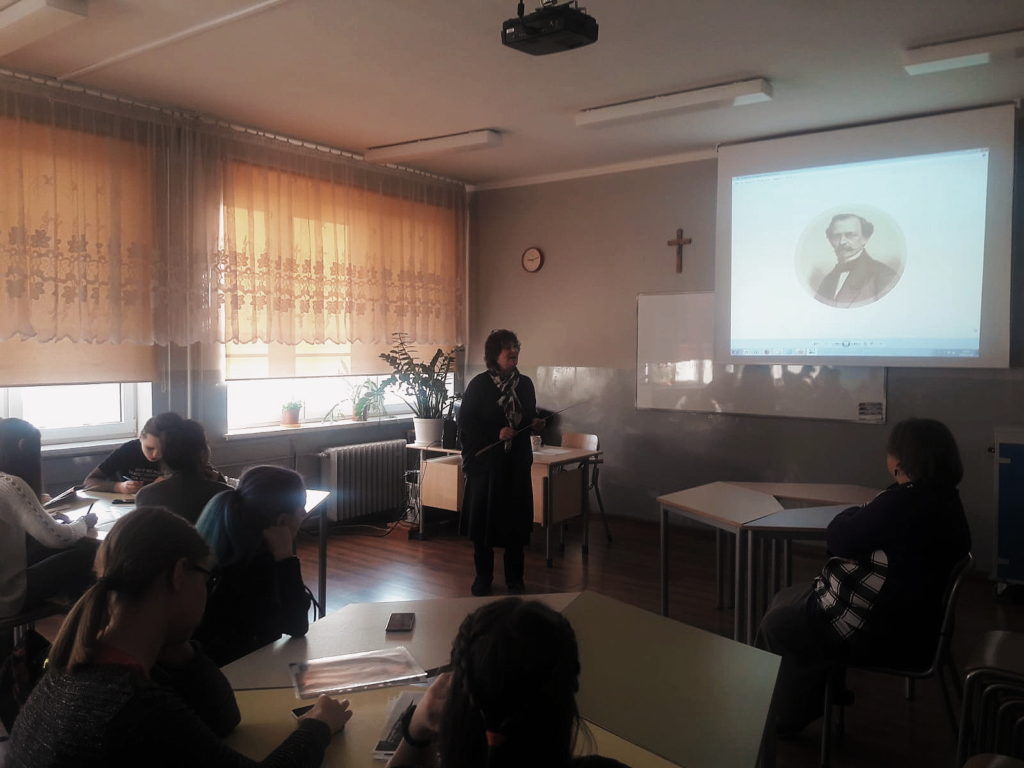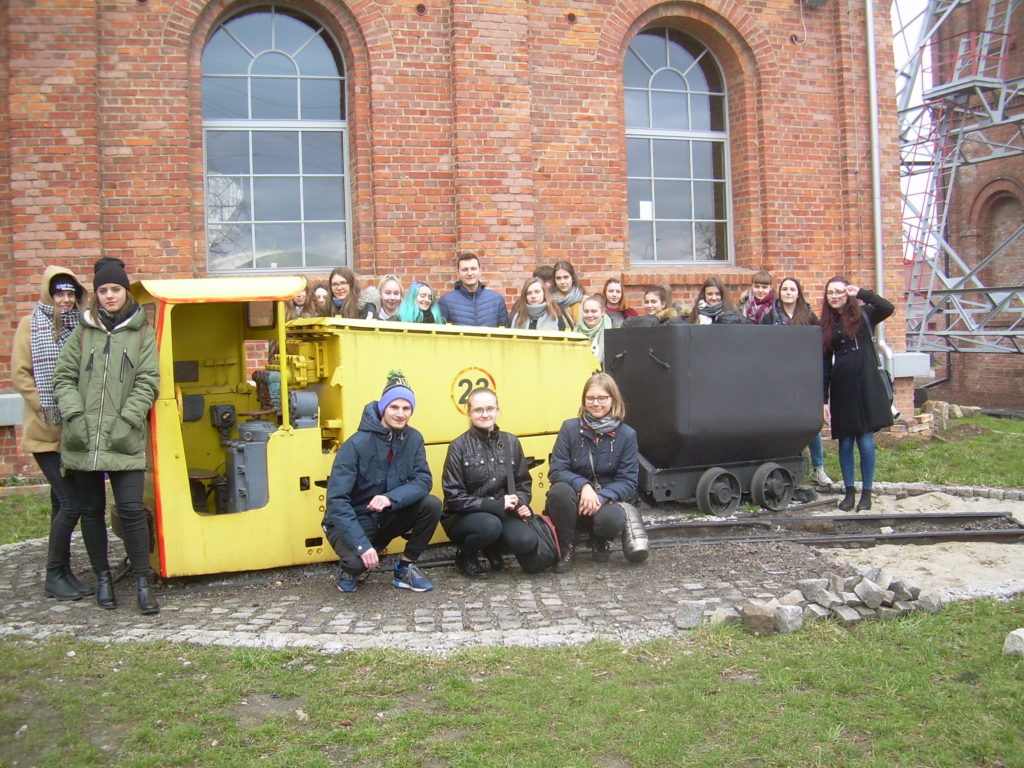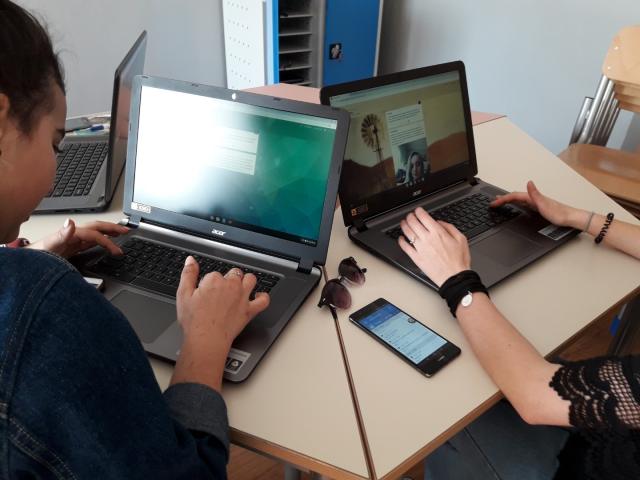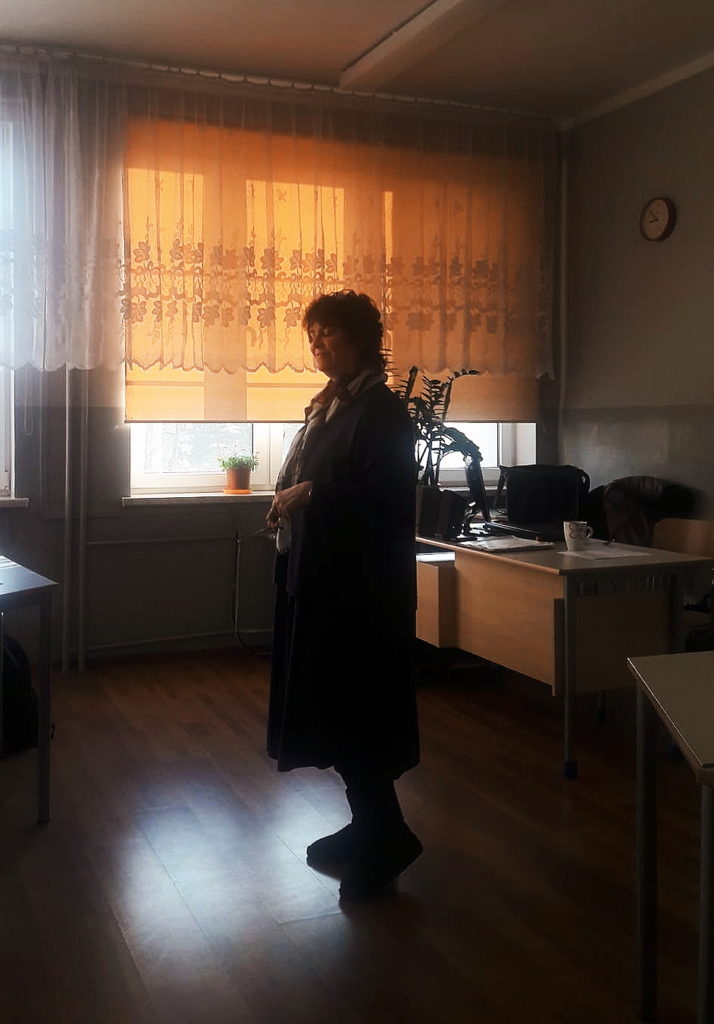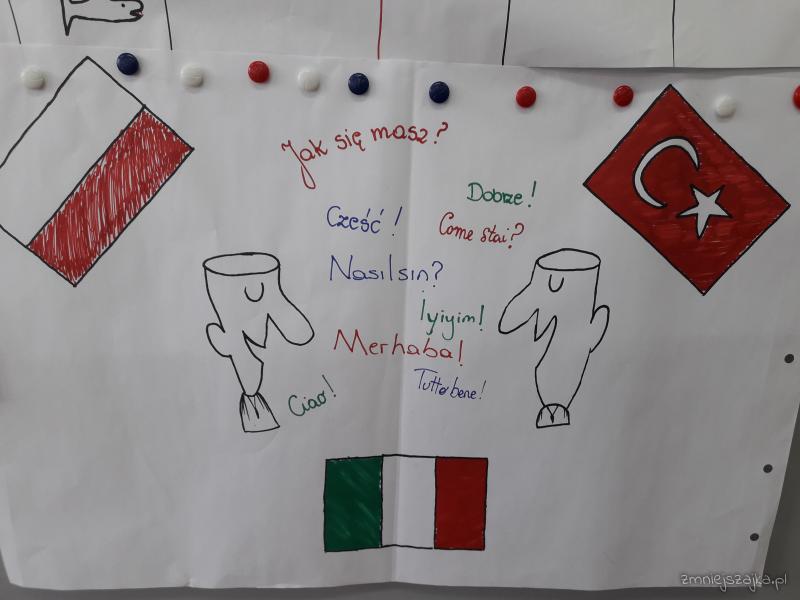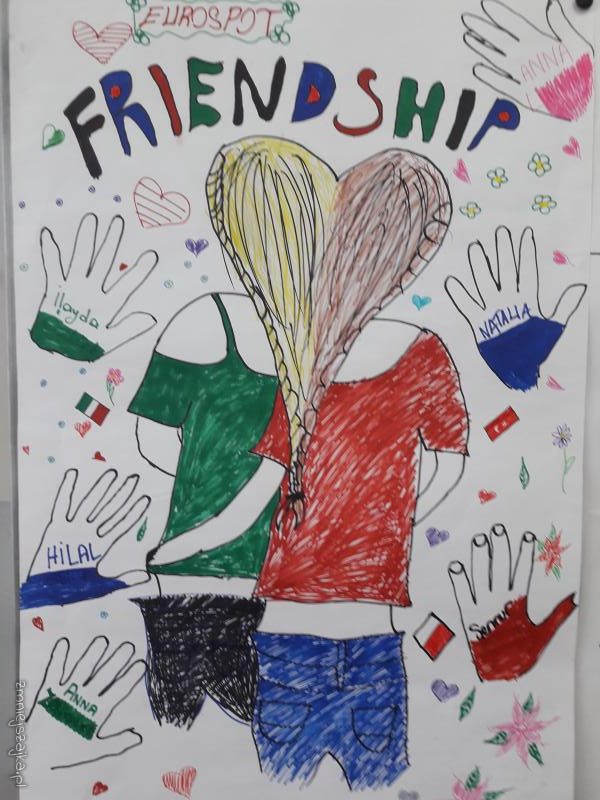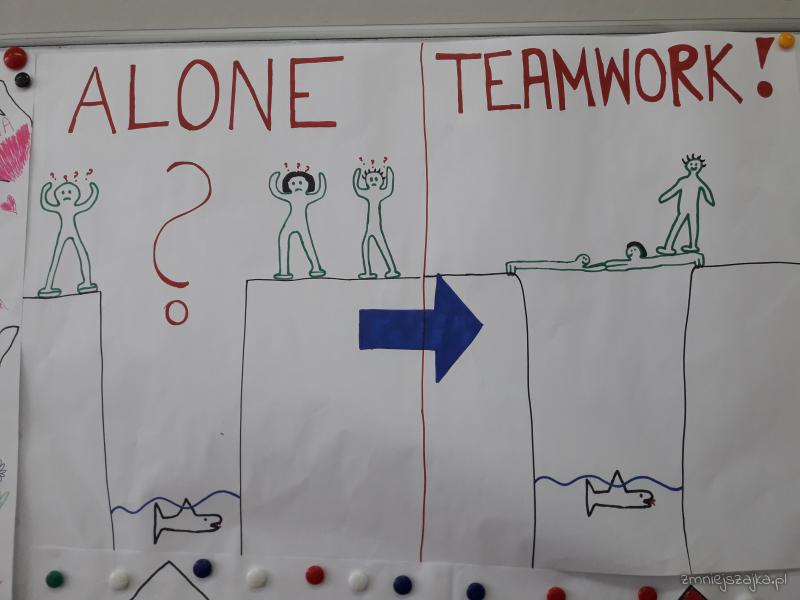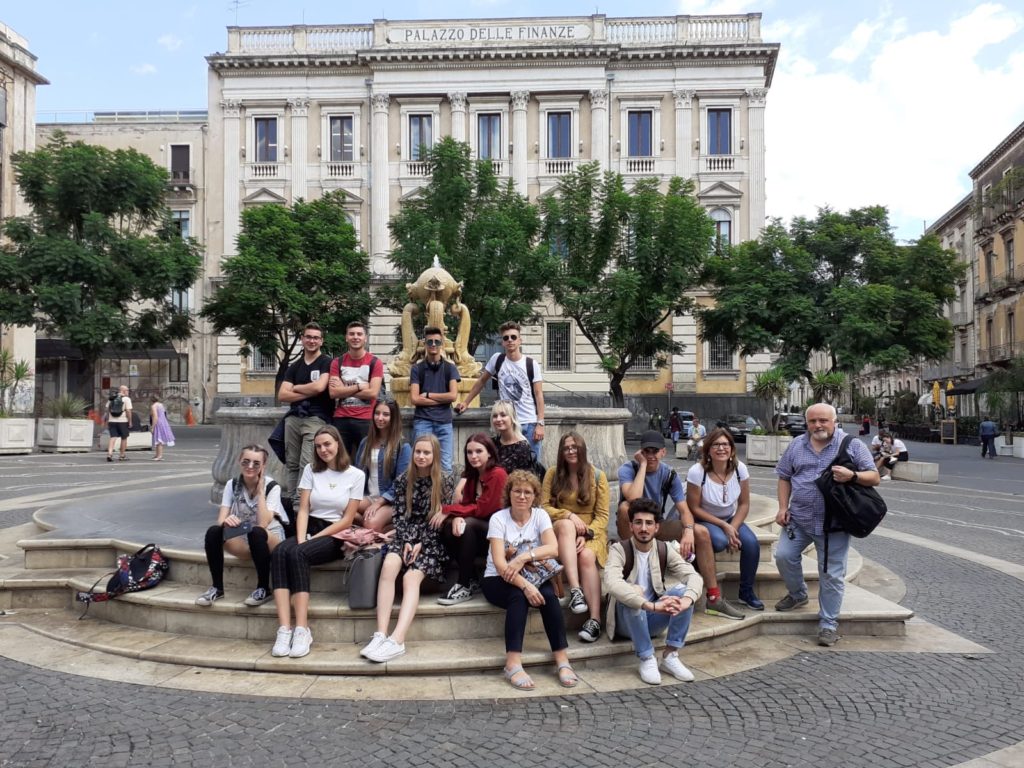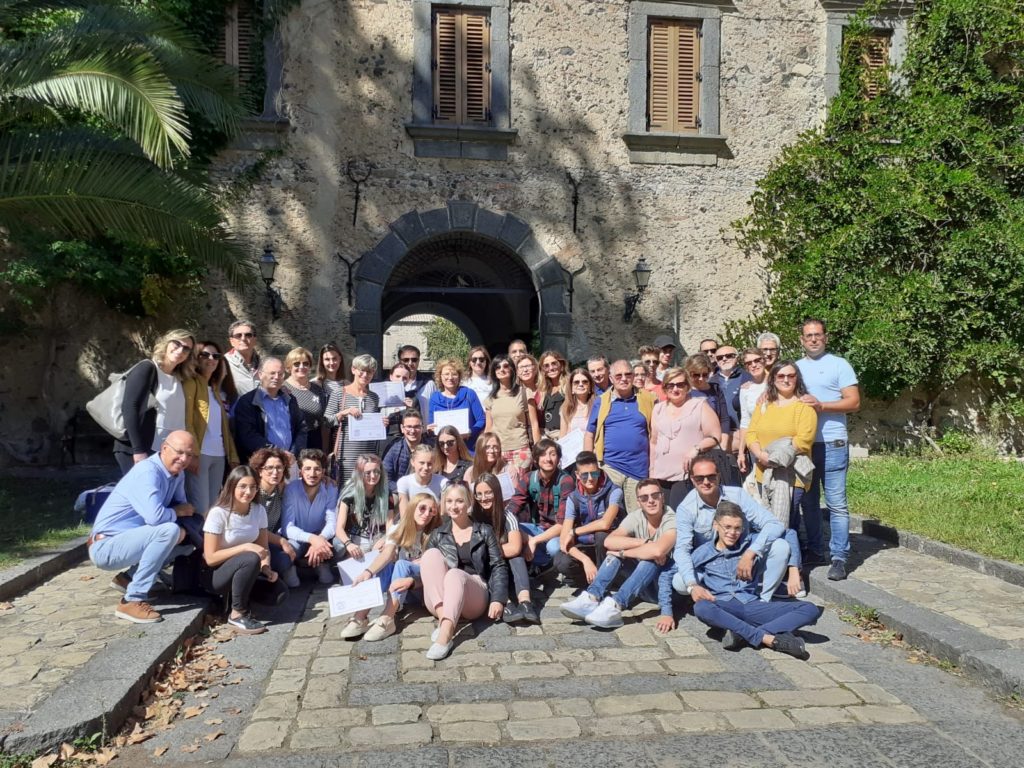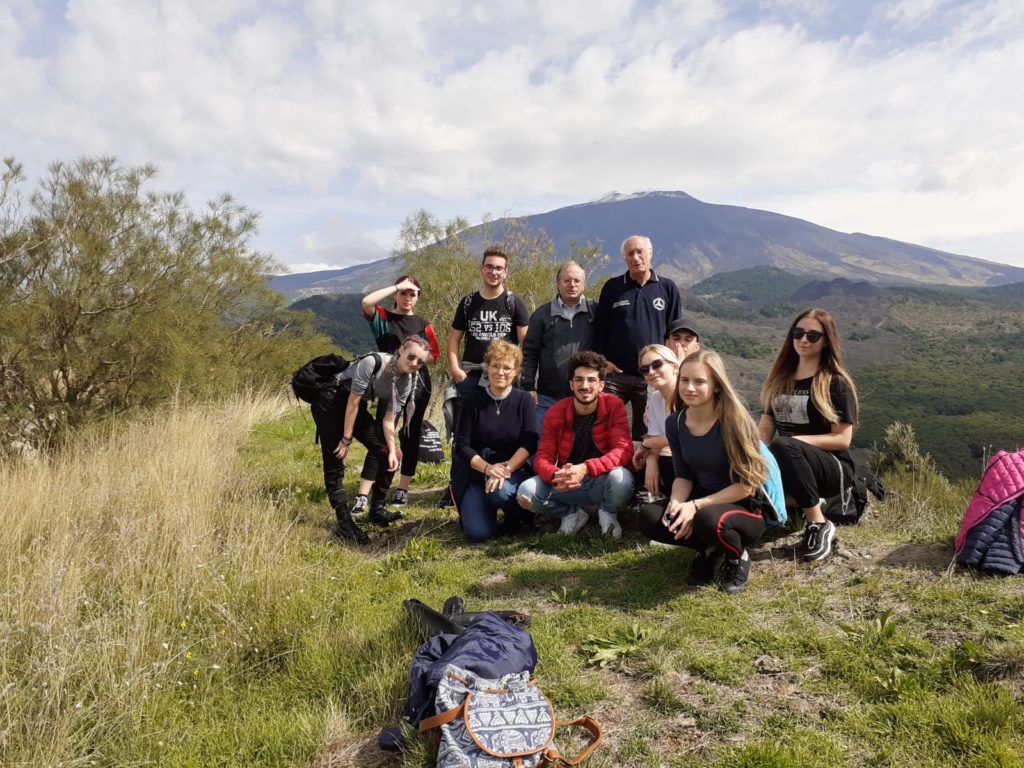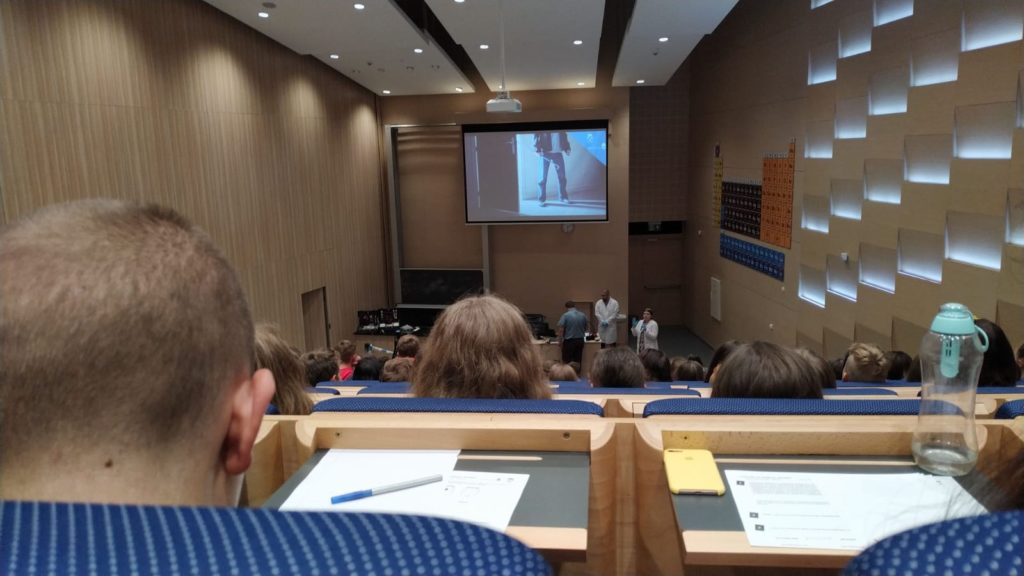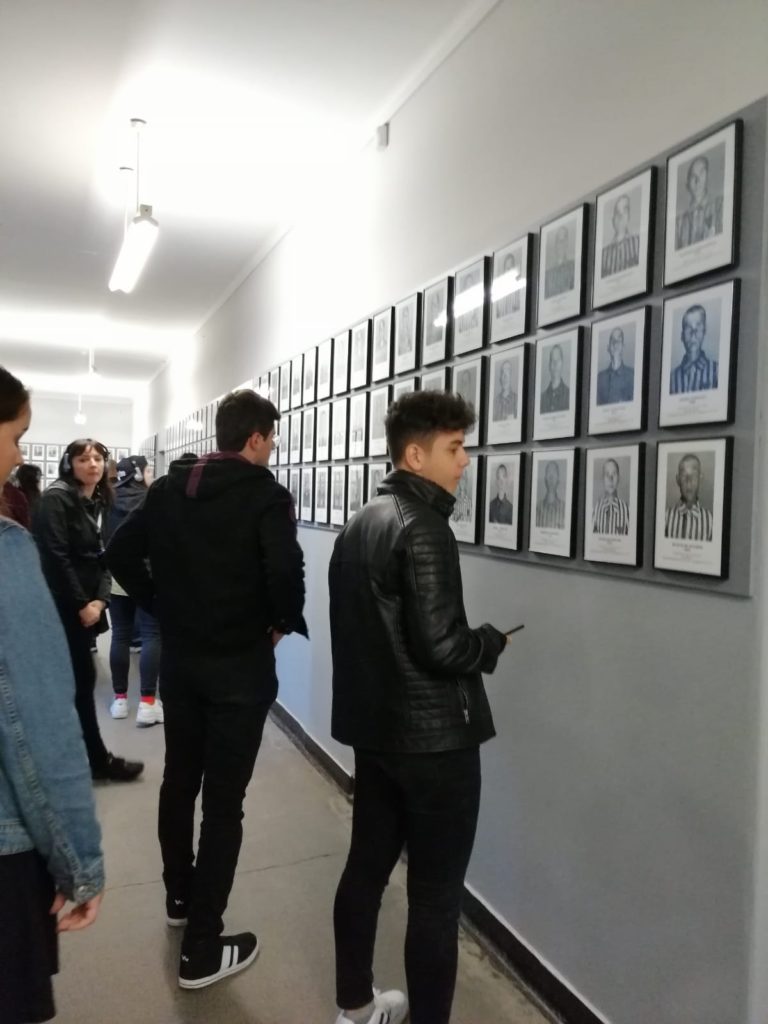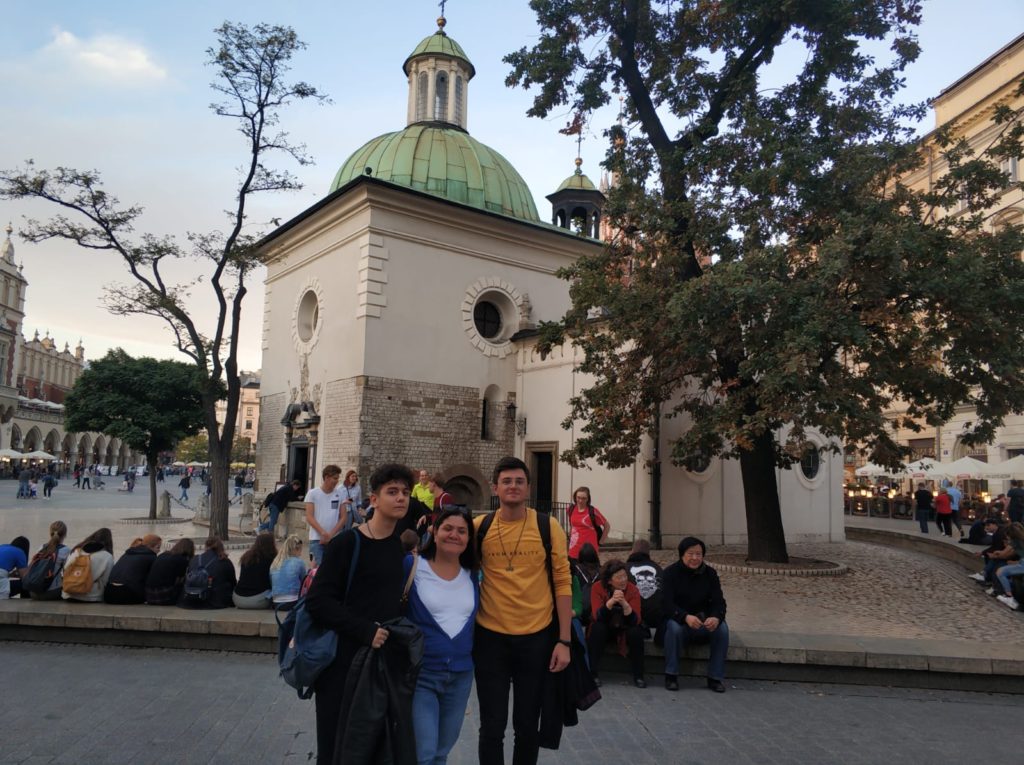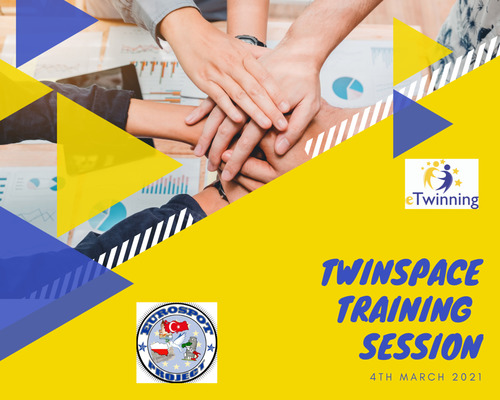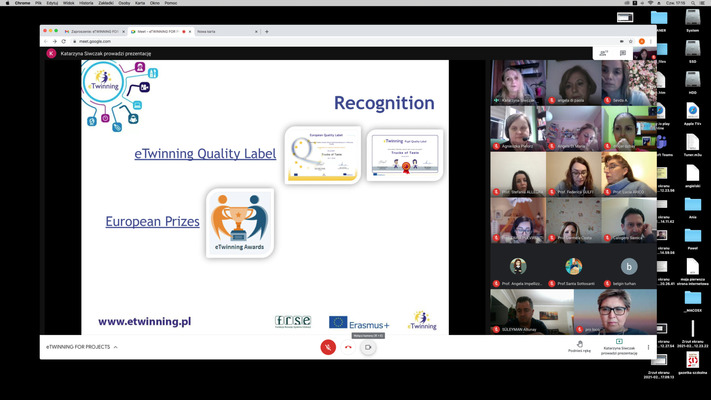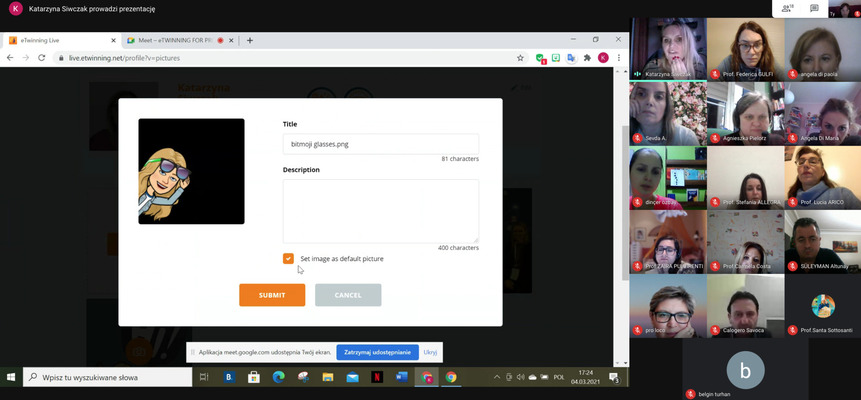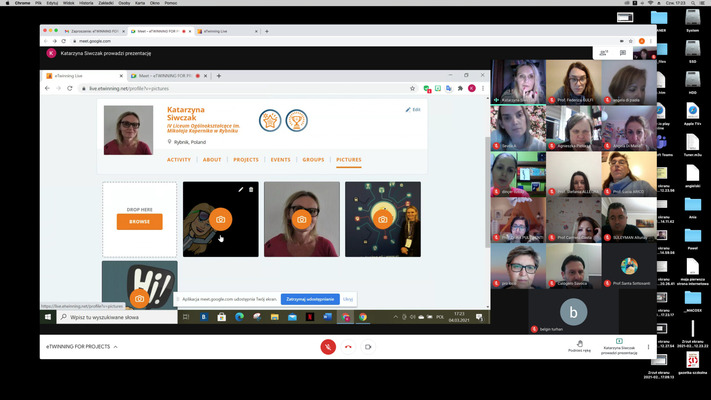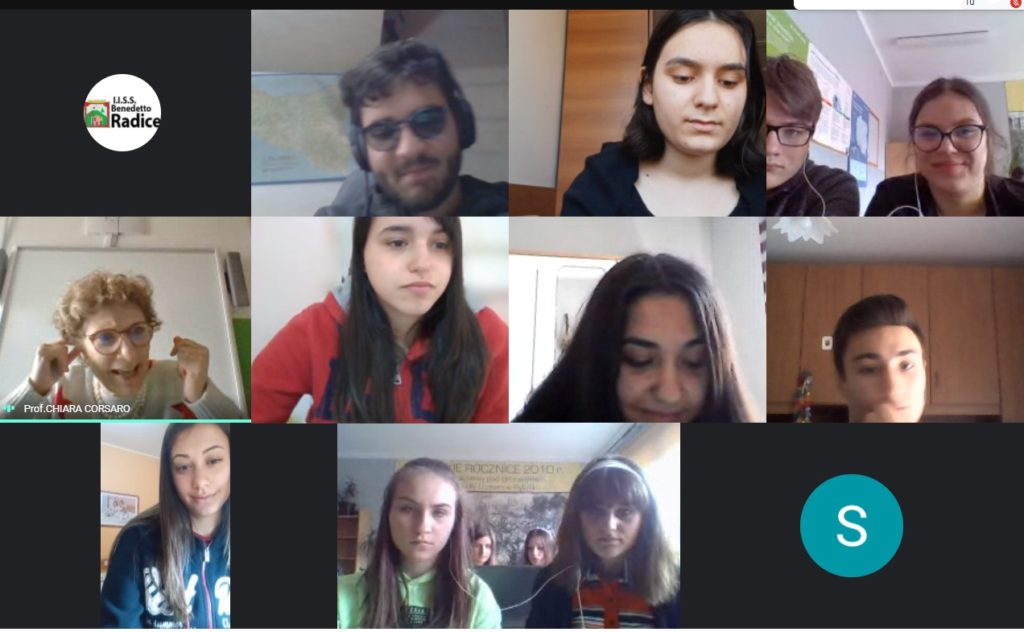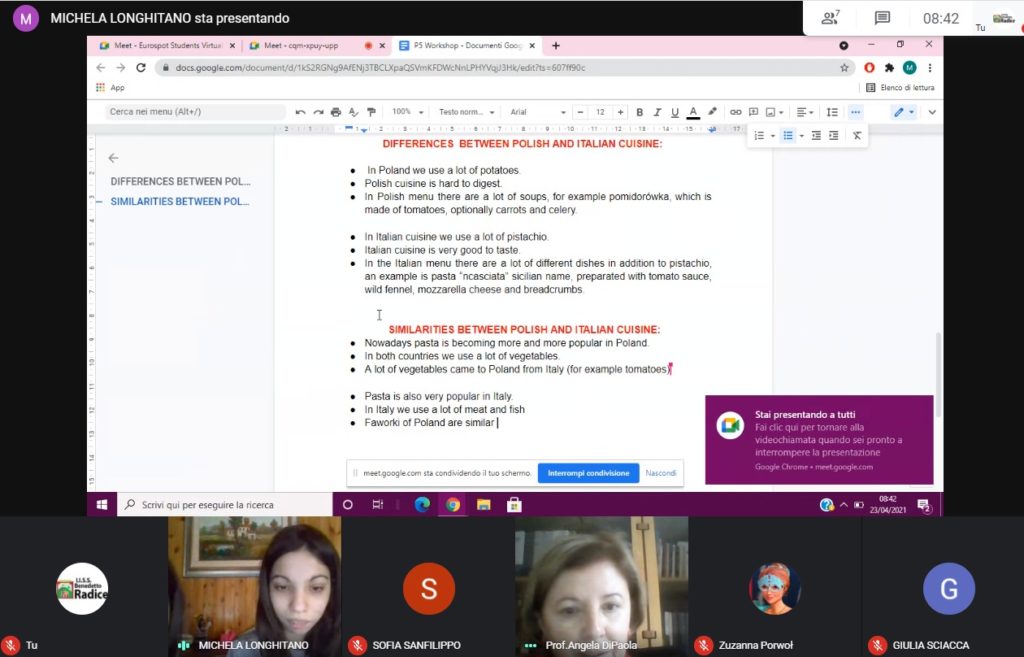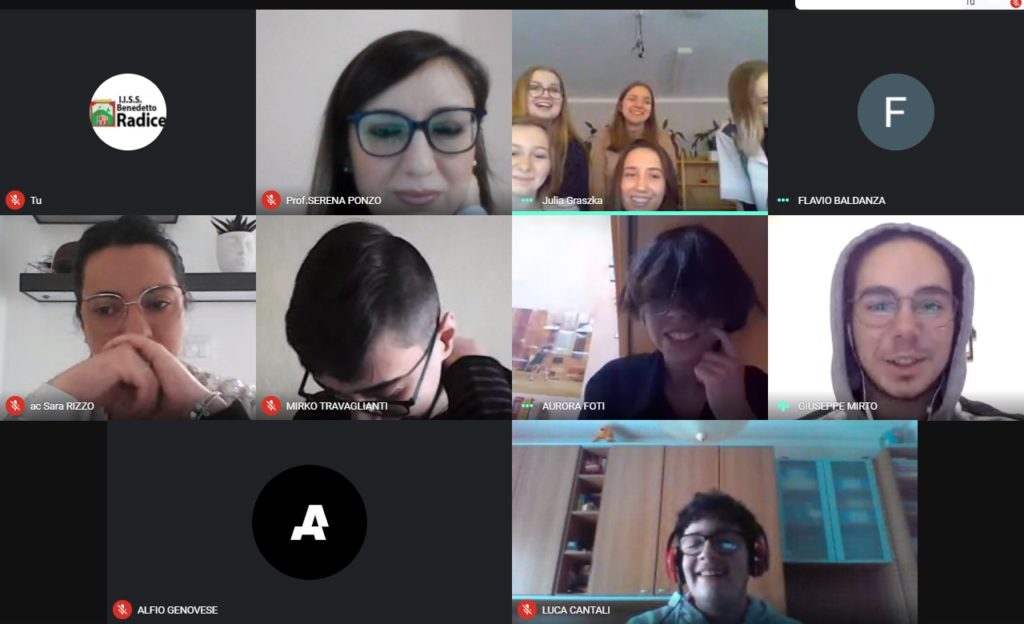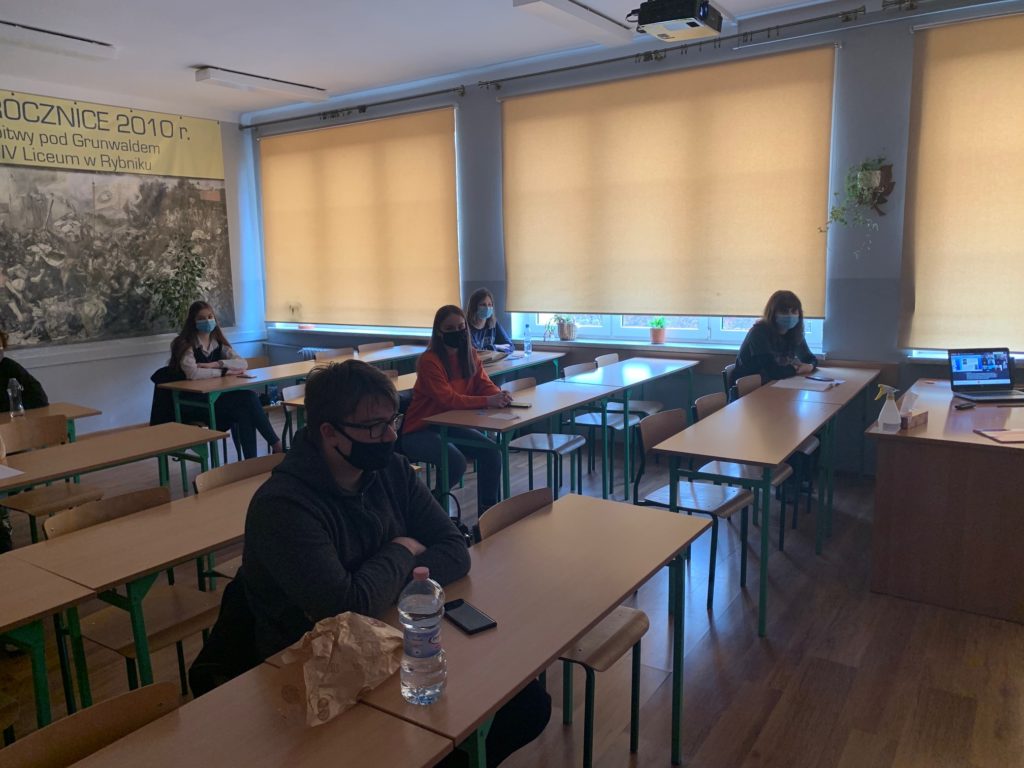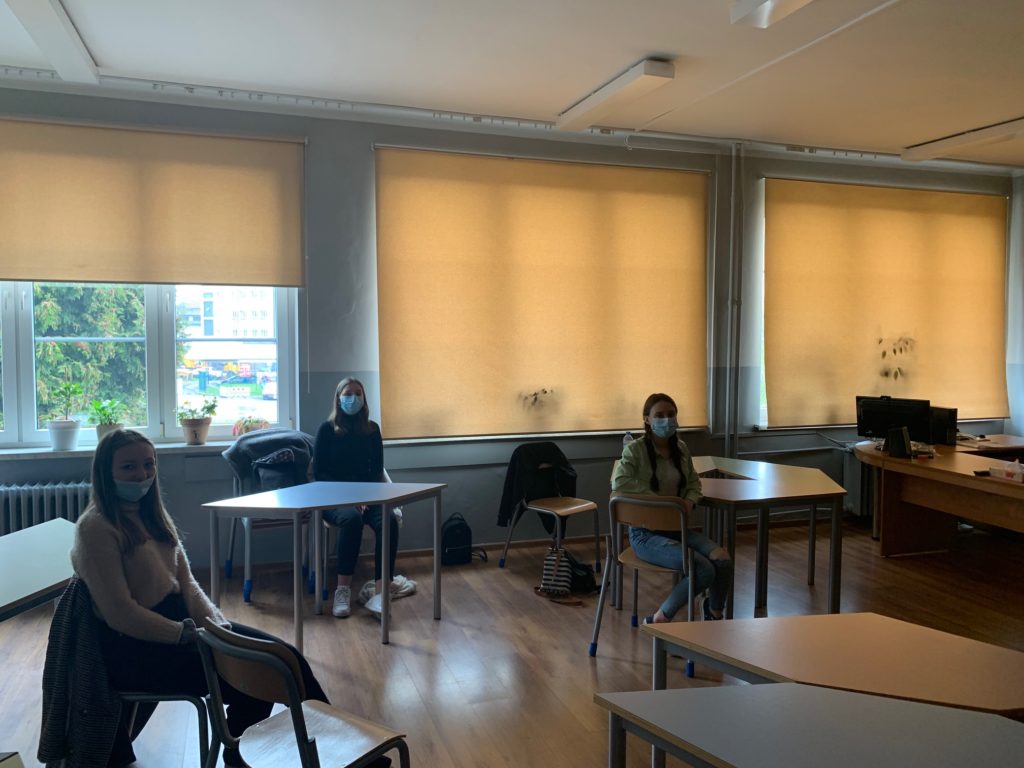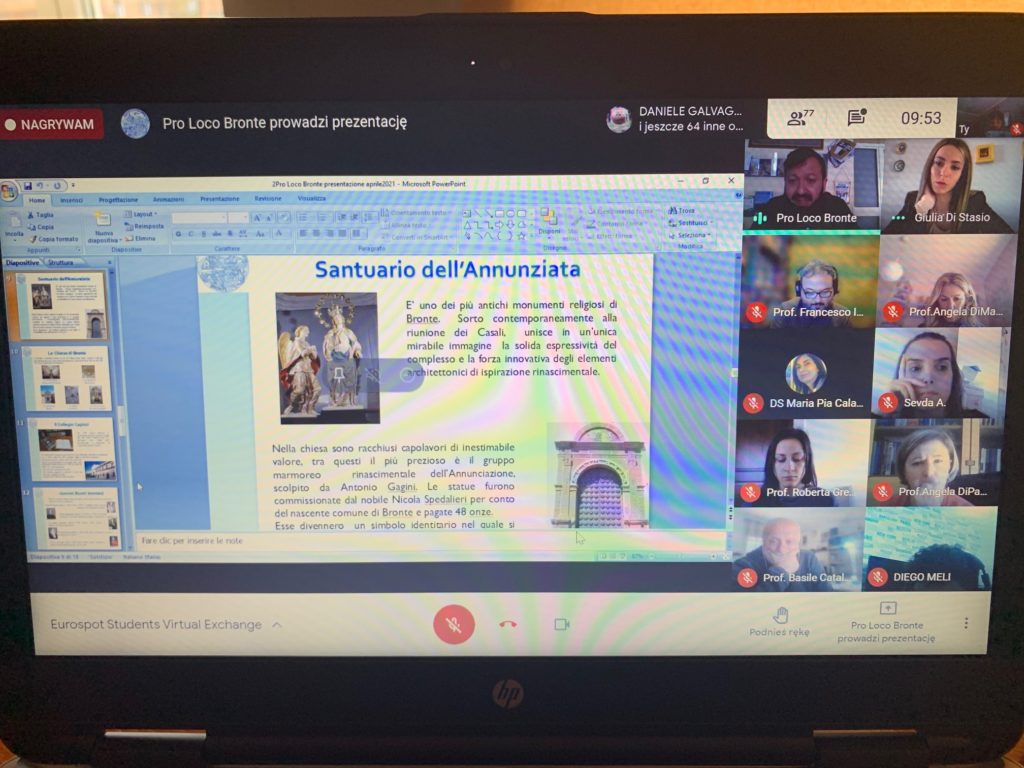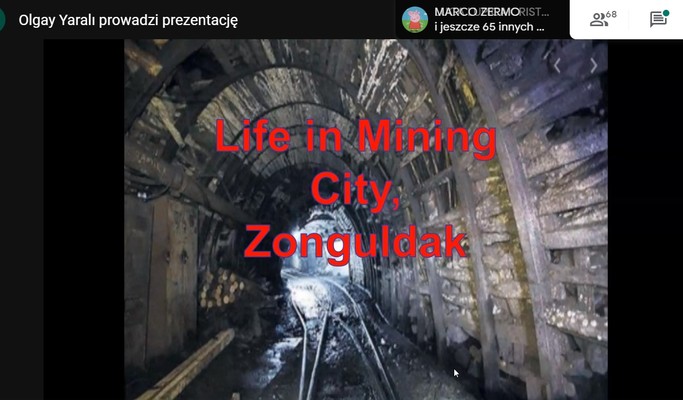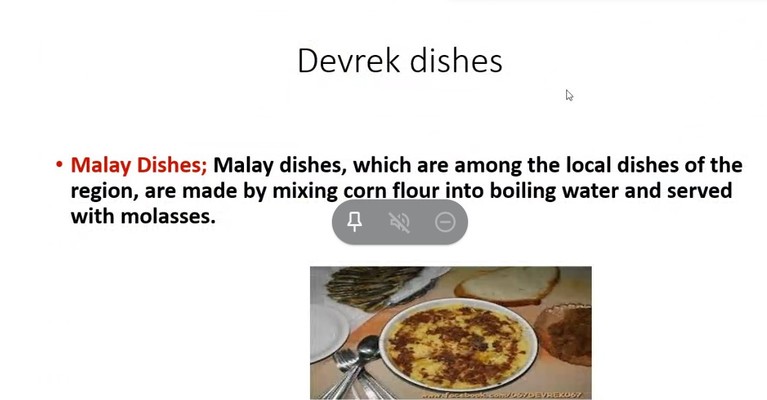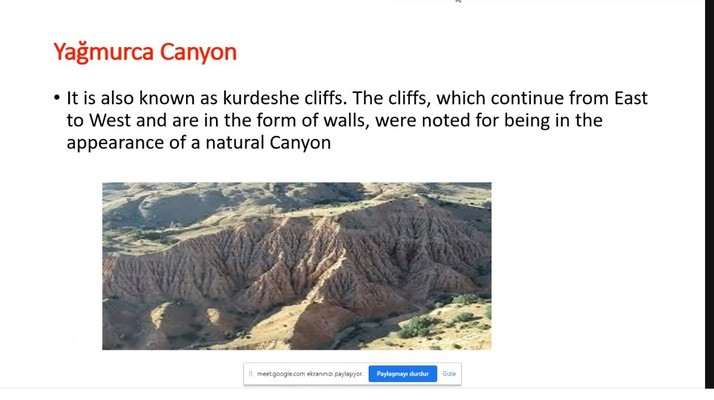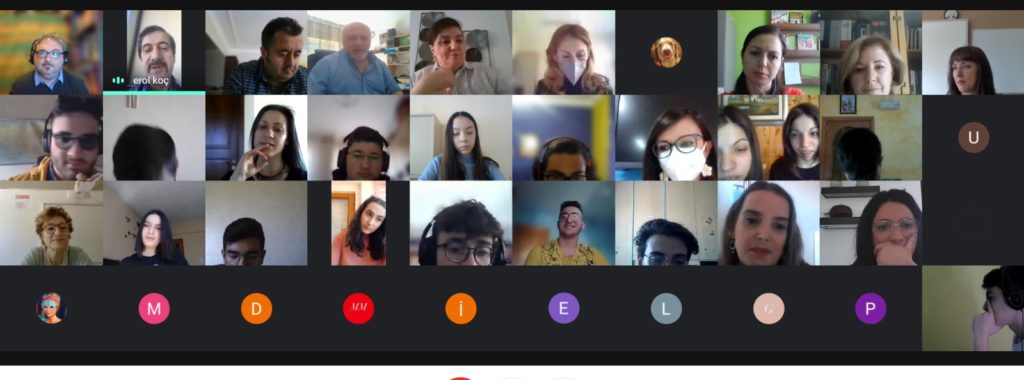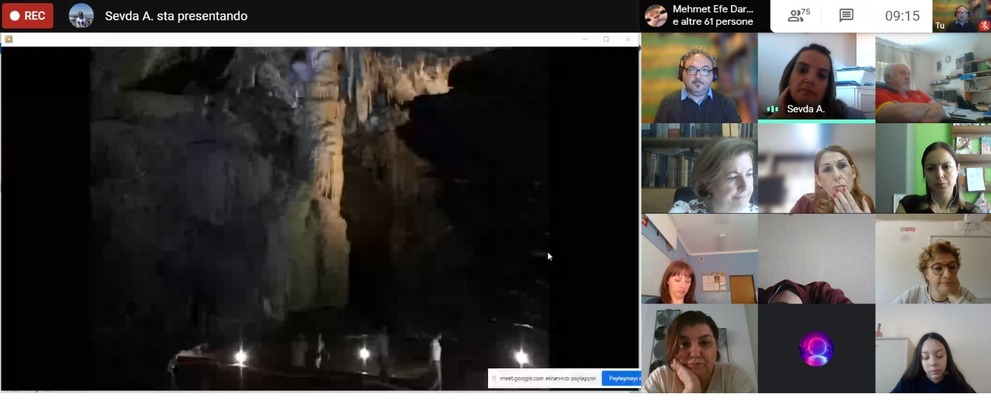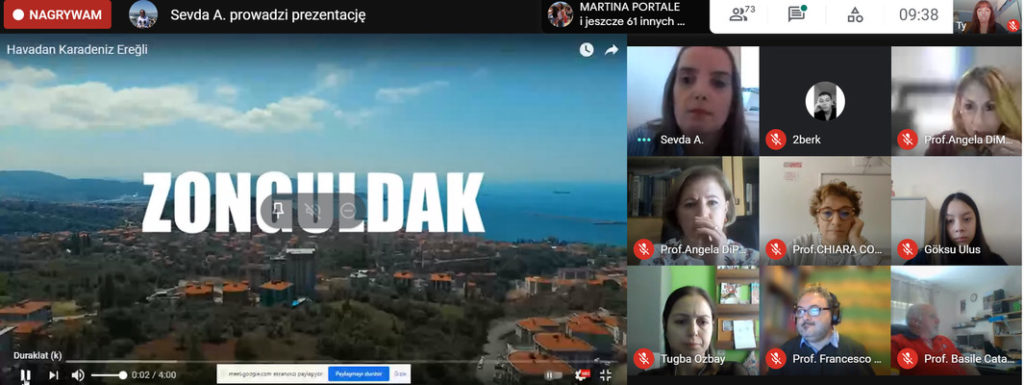2018
September
Preparations for the project – establishing groups of teachers responsible for the project. There were national meetings in each country connected with the project organisation.
We were very happy about getting the grant! However, in the mid of September there was a sad news. Spanish school decided not to participate in the project.
October
Each school chose the groups of students to work on the project. All students were informed about the project and its activities.
November
Preparing for the short-term joint staff training event. Cooperation between partners on the national and international level to choose teachers to participate in the mobility and to prepare a good programme (Polish and Italian teachers involved).
Launching the TwinSpace for the project: https://twinspace.etwinning.net/72493/home
December
The first short-term joint staff training event in Bronte
During the first staff meeting workshops connected with eTwinning were organised.
The first day: Activities at school and outside: Getting to know the school, people involved in the training, preparations for open seminar, visiting the local cultural heritage place – Catania and its history.
The second day: Activities at school: the basis of eTwinning (the seminar was open to all schools from the area of Bronte) – morning and afternoon. It included: the presentation of eTwinning platform – creating accounts for teachers who did not have, presenting the tools which are included in the platform.
The third day: Activities at school (morning): the eTwinning seminar: getting to know more tools for projects: padlet, Tricider, dotstorming.com, mentimeter, doodle, kahoot, Adobe Spark, canva.com. The afternoon part was the seminar run by the Italian school: how to make an App and the introduction of the project webpage
The fourth day: Activities outside the school: getting to know places of cultural heritage – collecting materials for testing the use of application. A detailed task to do was given to the teachers e.g. to take a photo, making a note, learning about possible ways how to get to a given place. Teachers had to put the specific info into the application.
The fifth day: Activities at school: the eTwinning seminar: how to disseminate project results, sharing the experience of visting different places on TwinSpace and using other tools (morning), the seminar run by Italian school: how to insert a given data to the App and how to connect it with the project webpage.
There were following methods used: presentations (ppt and then available for teachers as a pdf file), practical tasks during visiting cultural heritage places – teachers were the first users of the application, testing some tools like kahoot, tricider, working on a common presentation to introduce our project in all schools.
The participants were 4 teachers from Poland, 2 teachers and 2 headmasters from Turkey, 10 teachers from Italian school and another 10 teachers from Bronte who participated in open seminar.
All tools presented during the training could support teaching so each teacher can use them everyday.
Presentation about workshops in Bronte
2019
January – February: Logo contest
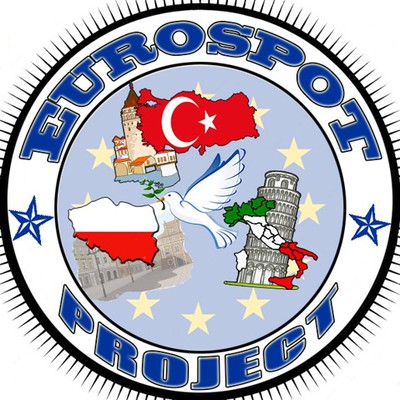
Announcing the logo contest. Choosing the best logo in each country then moving the contest to the international level; Students and teachers chose the winning logo which was the one submitted to the contest by the Turkish school.
March
Online meetings of students who are going to partcipate in the exchange in Poland. Getting to know each other! Managing all the details connected with the exchange.
Visits to places connected with our local cultural heritage. Students visited one or more places connected with their local cultural heritage. Additionally, there were workshops to get to know more about local cultural heritage and to get to know how to present interesting places; students’ presentations; preparing descriptions of 'Places of Interest’ in Poland (EurSpot application).
Learning Diaries – Students were taught to create Learning Diaries that they are supposed to run during the project using padlet.com
April – The first students’ mobility in Rybnik, Poland
7th April – getting to know school, teachers, families and some local cultural heritage: a tour round Rybnik – a presentation made by Polish students Monday
8th April – Activities at school: language and integration workshop (students got to know each other, they also learned about Poland, Polish culture and some basics of Polish / Turkish / Italian language), Italian and Turkish students showed their presentations about their schools and cities (morning), EuroSpot tour of Rybnik – students using the mobile application were to find and learn about specific places in Rybnik (they worked in international groups)
9th April – Students went for a study visit in Cracow to get to know the roots of Polish country: Via Regia, Poland during medieval times – after the visit they shared their experience on padlet Wednesday
10th April – Activities at school and outside: meeting at school, visit to Chwałowice Coal Mine (Silesian heritage), language and ICT workshop (students shared experinece from previous days using different kinds of tools), visit to Rybnik Town Hall – getting to know the roots of our town and meeting with the City Mayor Thursday
11th April – Activities outside school: getting to know local heritage: workshops with local craftsmen in the Museum of Bread, Radzionków (students had to bake their own bread), a study visit in Katowice and Silesian Museum Friday
12th April – Activities at school: students tried to evaluate their experience by creating posters, they filled the evaluation survey and they got certificates, farewell concert and dinner
The participants were 8 students from Italy + two teachers and 9 Turkish students + one teacher. From the coordinator school there were 17 exchange students and 8 students preparing the activties. There were also 12 teachers engaged.
The results of the mobility: students get to know each other – deeper parents’ engagement in the project – using
EuroSpot mobile application for the first time – the first evaluation of the app – learning to learn in multi-cultural groups
Film about the first exchange! Watch it!
May – June
Sharing the results of the project. Teachers’ meetings on the national level evaluating the first year of the project.
July – August
The coordinator school prepared the progress report in cooperation with other partners. All schools get to know the results of the assessement of the report made by Polish NA.
Preparing next school year activities – In each school there were teachers’ meetings to plan the activities for next school year – particulary regarding the short-term Polish students’ mobility to Italy and short-term joint staff training event.
September – the second short term staff training event in Zonguldak, Turkey
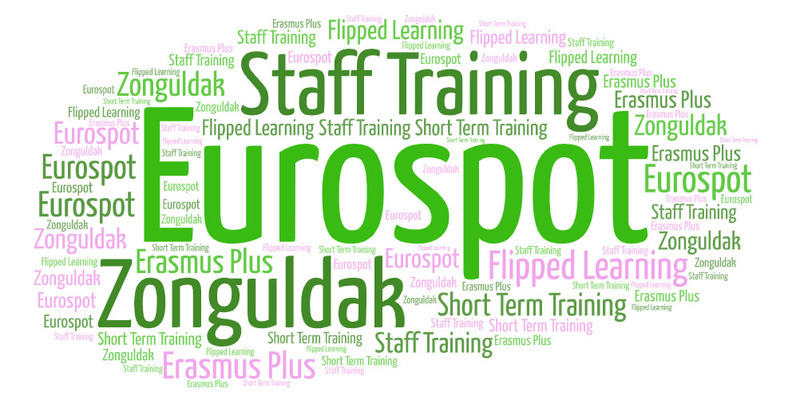
Content: – Turkish cultural heritage (historical places connected with Turkish identity, cuisine, lifestyle (visiting mosques, skansen Yörük Köyü, local museums, arts and crafts, natural monuments – caves, canyon, coal mining history: museum) – Workshop concerning “Flipped learning” Methodology: Trips, walks, workshops, a lecture, watching videos, practical exercises, working in groups – creating a lesson scenario, creating a poster, brochure.
Results: The participants: – Learned about the history and heritage of Turkey – Learned about local traditions – Visited places of historical importance and natural beauty – Enhanced professional development – Got to know the idea of ‘Flipped
learning’, created a ‘flipped lesson scenario” – Exchanged experiences, ideas, information concerning learning methodology, – Exchanged information and compared traditions, concerning learning methodology, – Exchanged information and compared traditions, lifestyles of Turkey, Italy and Poland – Developed communication and language skills. The participants of the activity were teachers from Turkey, two Italian and three Polish
teachers. Each school’s curriculum includes cultural and historical heritage, so this topic appears in lessons. Teachers who participated in the activity broadened their horizons, expanded knowledge which they will use in teaching, gained a wider perspective of European cultural heritage.
Watch the film about the training in Zonguldak!
October – the students’ short-term exchange Rybnik to Bronte
Day one – Welcome ceremony in the school assembly hall. Visiting Bronte schools, walking through the streets of the historical center of Bronte, watching murals referring to events from the history of Bronte, getting to know fichi d’india, visiting Pinacoteka – a museum with paintings and ceramics, the oldest Collegio Capizzi library and a chapel.
Day two – Visting Adrano – Castello Normanno (11th century): guided tour and seeing excavations. Getting to know the olive oil production line, tasting oil and olive paste in Oleificio Consoli. Students went to Parco Salanitro to plant 3 friendship olives. They also visited the doll museum (Museo dei Pupi), nature museum (Museo delle Scienze Naturali) in Randazzo.
Day three – Visit to the Town Hall – meeting with the mayor and heads of the education department and other officials. The mayor prepared and gave a letter to the President of Rybnik with a proposal to establish a closer cooperation between Rybnik and Bronte. Visiting Parco dell’Etna – a walk with a guide from the Mountaineering Societ around the nature park admiring the views, landscapes, lava (several hundred years old), they also learned about endemic vegetation and plants grown experimentally in this area
Day four – visiting Catania and Taormina Catania – city tour: visit to the City Hall, Piazza del Duomo, fishmarket (Pescheria), a cave with a spring, which is in the underground of the restaurant, city walls, Via Etnea – the main street of the city, Piazza Vincenzo Bellini (theater and opera house) Taormina: visiting the Teatro antico, Piazza Catedrale, Funivia di Taormina
Day five – working at school in groups – preparing a presentation about each day of the exchange – visting Castello Nelson – the chapel and the park. Certificate ceremony.
There were following methods used: lecture and visiting cities and museums with a guide, working in groups – preparing presentations, conversations – everyday individual conversations, observations – getting to know the life and culture of the people of Sicily. 8 students (aged 17) and 2 teachers from the Polish school in Rybnik and 8 students (aged 16-18) from the school „Benedetto Radice” in Bronte and a group of Italian teachers involved in the Erasmus + project. Each day there were different teachers from Italian school. Young people together during one-day trips visited historical places, learned the roots of European culture, learned the local flora and fauna, learned local culture (pistachio festival, olive production, regional music, dolls from Randazzo, Sicilian pottery and murals), learning the words from the Sicilian dialect: , fichi d’india, catojo, arancini, liotro (elephant from Catania). Such one day trips are usually organised in both schools to get to know local cultural heritage.
Watch the film about the Polish-Italian cooperation in Bronte!
November
There was a meeting with NA representatives and a group of students from the Polish school who were chosen for long-term mobility. The meeting was about cultural context, managing difficult situations when being abroad, Q&A session. The NA representatives also met with teachers who would be mentors or accompanying teachers. The training covered the following topics: how to support a student abroad, how to support students’ families, what to do aftre coming back, how to manage long-term mobility, Q&A session.
November – December – The first long-term students’ mobility in Rybnik, Poland
Ulas and Berkay were accomodated in the homes of Polish students, therefore, a lot of experience was passed via living in Polish families. At school they participated in lessons together with Polish students. They also had some classes organised by Polish teachers to teach them some basics of Polish language. Mainly, students attended English lessons as their main aim was to prepare for final exams in English, therefore, they went to different classes so that was a big chance for them to get to know different learning styles of Polish students. They also took part in the general school life including such school festivals like: the initiation ceremony for the first graders in October, the Polish Independence Day – a ceremony at school and also some local ceremonies, Copernicusy (6th October) – a school festival to promote students who are good at e.g. scientific subjects or they have a particular talent in Arts or they engaged in a voluntary work. In families they got the chance to experience traditions connected with All Saints’ Day, Santa Claus Day and Christmas fair which was organised in Rybnik. Students took part in some school trips particulary these connected with univerisities. They went to Jagiellonian Univerisity – Faculty of Chemistry for a lecture on chemistry in criminology. Together with our last year students they went for a three-day trip to John Paull II Catholic University of Lublin. They got the chance to visit different faculties and additionally they also got to know some of Polish history connected with Lublin and eastern Poland. Some trips were also prepared by host families: Warsaw, Wrocław, Beskidy Mountains.
A short film prepared by Berkay
December
Students shared the first impressions of long-term mobilities together with Italian students via padlet and online meeting.
Sharing Christmas traditions and exchanging cards.
2020
January – February
Online courses about webinars. Teachers participated in different kinds of online courses connected with different ways of
promoting projects. Exchanging ideas on padlet.
February – March – The long-term mobility in Zonguldak
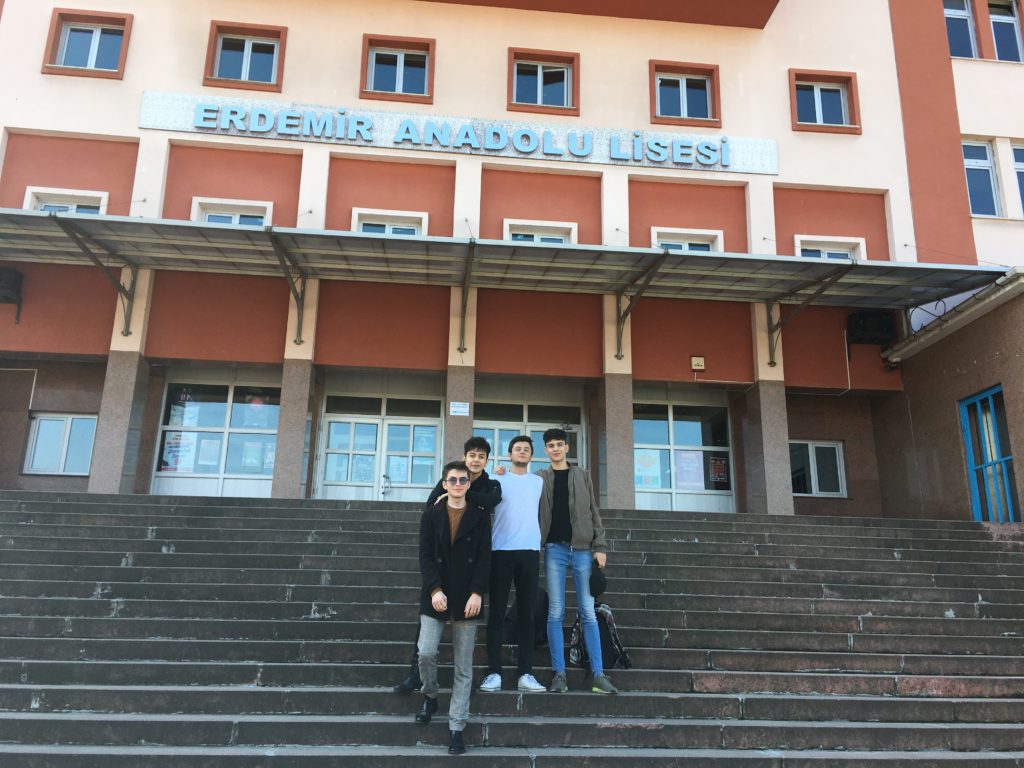
Students participated in lessons together with Turkish students for two weeks. They got to know the Turkish school very well and also the Turkish educational system. They were also able to find out some new things connected with Black Sea region. Staying with Turkish families was also the chance to get to know the every day life of Turkish people. There were planned some extra activities but unfortunately due to Covid-19 pandemic students had to come back to Poland after two weeks of being in Zonguldak, Turkey.
March
The interim report was submitted. There were two online meetings of teachers connected with the fact that Covid-19 pandemic started. There should have been a training onsite in Rybnik, Poland for teachers in the end of March. During these meetings it was postponed till the end of April.
April
Online project meetings – teachers and students
There was another meeting about project actvities as it was not possible to have the training in Rybnik, Poland in the end of April. Schools shared among students the first experiences of Covid-19 pandemic. They shared works or activities carried out at schools connected with the pandemic.
May – June
Students shared the experiences among them connected with exchanges particulary long-term exchange. Teachers were responsible for doing that during online activities. A project online meeting – Italian school informed other partners that it is not possible for them to be responsible for preparing the application and the webpage due to some changes. Some teachers from their school changed their workplace. It was established that partners will try to find ways to solve that problem during holidays.
July – August
Collecting all the documentation by teachers and reviewing all of them and things produced so far. Establishing the new division of responsiblities among partners. Unfortunately, the project of the mobile application was lost. The participants of the project were also aware of the fact that there was a big drawback of the first application as it was only possible to use it on the Android system.
September
Project online meetings – sharing the experiences of Covid-19 panedmic and some possible ways to include new students and new teachers into the project. Sharing the possibilities in each country to have the onsite exchanges as they were the crucial point of our project.
October
Project dissemination 0 The coordinator school took up the responsibility of preparing and working on the project webpage. All the things from the previous webpage were copied. There were also some updates made on the project TwinSpace. All schools informed students, teachers and parents about the project.
November
New students were introduced into the project. They reviewed all previous materials and exchanged their previous experiences about international projects.
December
Project meetings connected with the possiblities of exchanges. It was established that schools would try to find out about the possibility of having exchanges during summer holidays. Students shared experiences about different religious and cultural traditions.
2021
January
Students prepared some presentations about applications. They tried to research about strong and weak sides of applications. They shared their results. According to them there was a worksheet prepare to check if the application is nice to use. Looking for a good application for our final product.
February
After different researches we decided to take up ActionBound as an application for the final product. Teachers took part into some trainings about the possible ways to use the application.
March
A training session for new teachers who wished to partcipate about eTwinning tools. There were about 20 teachers present (most of them from the Italian school). Coordinators from all schools were informed and trained by NA agencies about new possibilities of virtual exchanges. Online project meeting to establish all details about virtual exchanges. Students got to know each other via padlet.
April – the first virtual exchange
Students from all three schools gathered online to work together on cultural heritage. The virtual exchange was organised by the Italian school from Bronte. As participants are concerned it was open at all schools to anyone who wanted to participate.
Day 1: opening ceremony, working in national teams to prepare questions about our local heritage for quiz, online survey about expectations and feelings, sharing the results of survey, online quiz (Kahoot) for all students about cultural heritage, introducing teams from each country who particpated in the exchange
Day 2: introduction to the Italian school and Bronte, the land of Etna and its surroundings, traditions connected with
pistachio nuts, a virtual walk through Brontese trazzere, Collegio Capizzi then moving to Nelson castle and Randazzo (the land of wine), ceremonies of the Holy Week in Bronte and Randazzo Day 3: introduction to Maletto: the land of strawberries, Maniace and its history, Cesaro: the land of the Black Pig and Porcini Mushrooms, getting to know Etna
and all traditions connected with it Day 4: working in international groups, students were divided into international groups and they had to work on a given topic: 1. Typical products of the tradition (nuts and its products), 2. Typical products of the tradition (fruit and its products), 3. Cultural traditions (ceremonies), sharing the presentations,
evaluation of the virtual exchange.
Each day there were some local experts introduced by the Italian school and students listened to their descriptions but also they could ask some questions (’Experts corner’).
In the second half of April we carried the evaluation after the first exchange in Italy. There was also a project meeting to evaluate and to prepare the exchange in Turkey.
May
Students from all three schools gathered online to work together on cultural heritage. The virtual exchange was organised by the Turkish school from Zonguldak. As participants are concerned it was open at all schools to anyone who wanted to participate.
Day 1 – welcome ceremony, presentation of the programme, introduction of Erdemir Anatolian High School, the history of city of Zonguldak and Youth Week in Zonguldak, carrying out a survey connected with students’ covid experiences and ways of managing the stress
Day 2 – getting to know the cultural heritage of Zonguldak: the monumental tree in Zonguldak, Ereğli, Gökgöl cave, Filyos castle and the Mining museum, workshops in international groups about experiencing pandemic, online quizz – Kahoot about the Turkish cultural heritage
Day 3 – getting to know Devrek history and Devrek dishes, Ramadan ceremonies (traditional folk dances, tools and instruments), the history of mining in Zonguldak, workshops in the international groups to prepare some presentations, Kahoot quiz.
The platform for the online meeting was Google and it was provided and secured by Italian teachers. Each day there were presentations prepared by Turkish students using some online materials. There was also an expert talking about the history of mining in Zonguldak. The activity was directly related to normal activities of schools through the fact that students learned about cultural heritage of another country i.e. covered in a lot of subjects: Geography, History, English language etc., they also learned some digital skills (which are priorites for all the schools). Students also had the chance to share their feelings and experiences about the pandemic and it was a very good way to support one another. Thus, the motivation towards communication with one another was increased and it helped to keep the positive attitudes.
June
Evaluation after the exchange in Turkey. Working on mobile application – exchanging presentation with places to put into the application.
July – August
Teachers made the evaluation with students during online meeting. The students had different attitudes as it was very difficult for them not to have the chance to go abroad. However, they were satisfied with working online during virtual exchanges. The results of the project were shared among students, teachers and wider community (parents, local authorities). The coordinator school also had a check from the Polish National Agency – there were no major problems verified.
